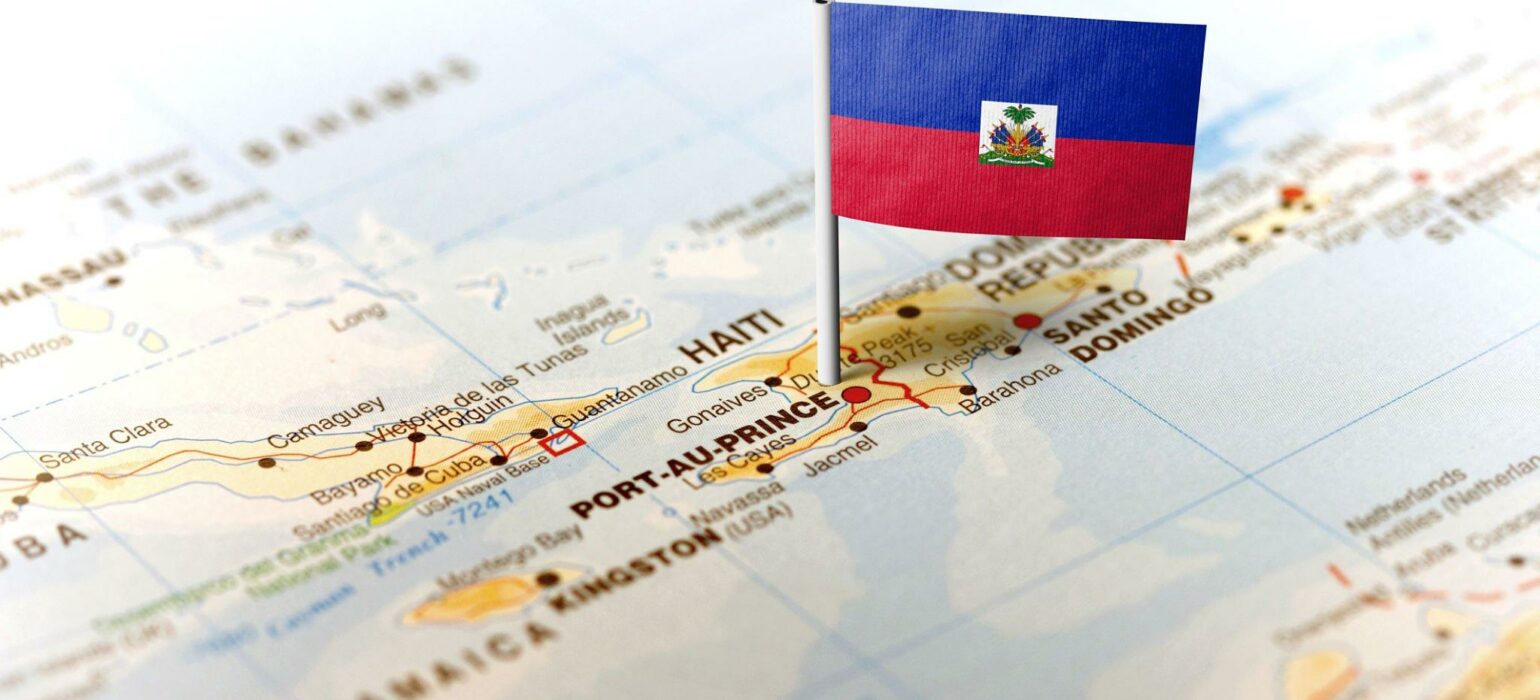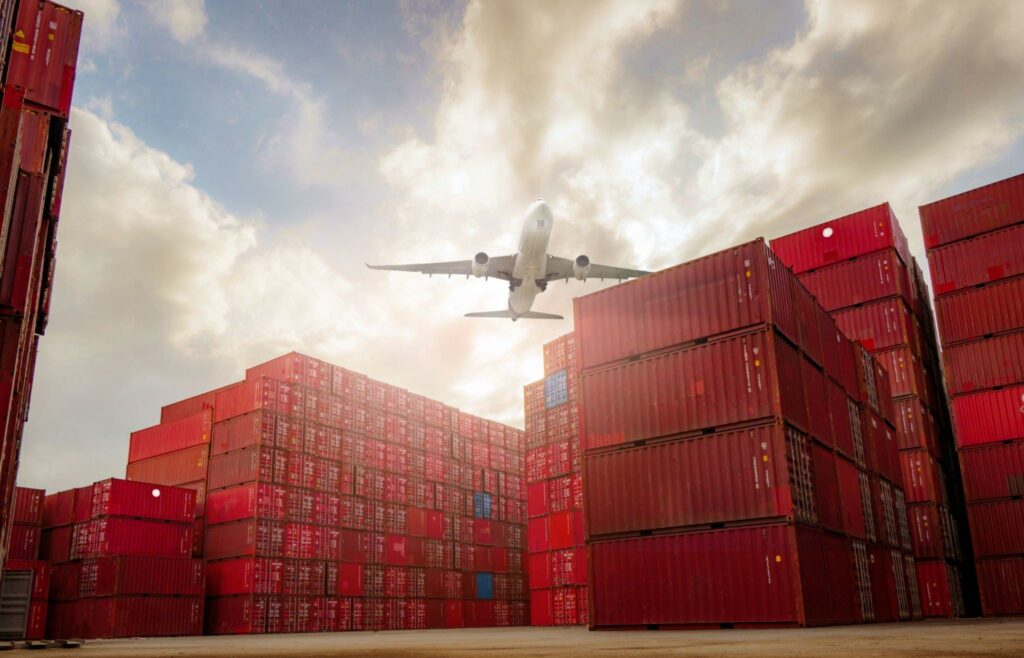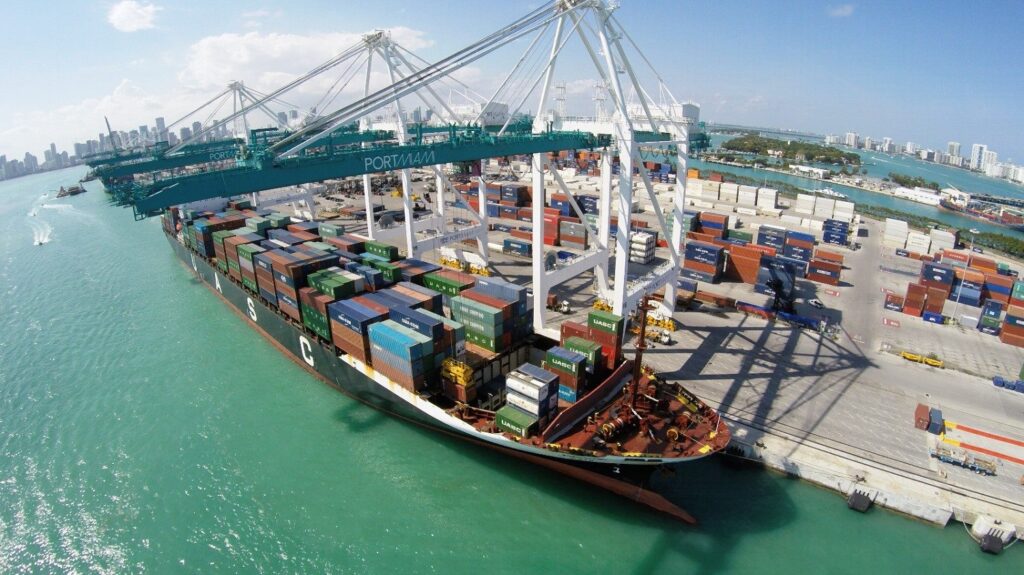A Comprehensive Overview of Shipping Goods to Haiti

Shipping Goods to Haiti: A Detailed Study
International Shipping to Haiti may seem like a daunting task, but with the right knowledge and preparation, it can be a breeze. Nestled in the Caribbean, Haiti is a country with a rich culture and history. It’s a popular destination for those looking to send aid or for businesses looking to expand their reach. But before you send your shipment, there are a few things to keep in mind. But before anything, let us explore some facts about Haiti. In short, let us explore the Caribbean country.
About Haiti

Haiti is a small island nation with a big heart, located in the Caribbean and known for its stunning coastline, rich cultural heritage, and vibrant history. From a shipping perspective, Haiti is a hub of endless opportunities, providing an efficient and cost-effective gateway for sending and receiving goods from around the world. Whether you’re looking to import textiles, electronics, or other products, Haiti’s ports are well-equipped to handle a wide variety of goods, making it a convenient choice for businesses of all sizes.
With its strategic location at the crossroads of the Caribbean, Haiti is easily accessible from many countries, making shipping to and from Haiti a breeze. The ports in Haiti are well equipped with the latest technology and infrastructure to ensure that goods are handled quickly and efficiently, reducing the time and effort required to manage the shipping process.
In addition to its accessibility, Haiti also makes for a popular tourist destination. The stunning coastline and tropical forests add to its rich cultural heritage, making it a fascinating and diverse country that is well worth exploring. So if you want to import goods or simply want to experience the beauty and culture of Haiti, shipping to and from Haiti is an excellent choice.
So why wait? Start shipping to Haiti today and discover a whole new world of possibilities. With its efficient shipping infrastructure, rich cultural heritage, and stunning scenery, this Caribbean nation is a tropical paradise that’s waiting to be explored. So let’s get started and discover the joys of shipping to this country.
What Things Can You Ship to Haiti?
Haiti, as we learned, is a bustling hub of commerce, with a wide variety of goods coming in and out of its ports every day. There are a few things to keep in mind when it comes to what can and cannot be shipped to Haiti when you are looking to ship goods for personal or business purposes. The country has strict rules on what items are allowed into the country, and it’s important to be aware of these restrictions before sending your shipment. Let’s start with what can be shipped to Haiti.
Many everyday items, such as clothing, electronics, and household goods, can be shipped without any restrictions. Agricultural products, machinery, and construction materials are also commonly shipped to Haiti to support its growing economy. In addition, Haiti’s ports are equipped to handle both container shipping and breakbulk cargo, making it easy to find the right shipping solution for your needs.
However, just like Latin America Shipping, there are some items that cannot be shipped to Haiti due to restrictions and regulations. Hazardous materials, such as chemicals, weapons, and explosives, are prohibited from being shipped to Haiti. In addition, items that are illegal or restricted in Haiti, such as illegal drugs, counterfeit goods, and wildlife products, are also prohibited from being shipped.
It’s important to understand these restrictions when shipping to Haiti, as violating these rules can result in serious penalties and legal consequences. To ensure a successful and hassle-free shipping experience, it’s always a good idea to work with a reputable and experienced shipping company that is familiar with the rules and regulations in Haiti.
Here is a list of things that are allowed:
- Food and household goods
- Clothing and personal items
- Medical supplies and equipment
- Building materials and tools
- Electronics and appliances
- Vehicles and spare parts
- Educational materials
That said, always check with local authorities regarding restrictions and requirements for shipping certain items to Haiti. Next comes the things that are not allowed for shipping to Haiti.
There are some items that cannot be shipped to Haiti due to restrictions and regulations. Hazardous materials, such as chemicals, weapons, and explosives, are prohibited from being shipped to Haiti. In addition, items that are illegal or restricted in Haiti, such as illegal drugs, counterfeit goods, and wildlife products, are also prohibited from being shipped.
The following items are restricted or prohibited from being shipped to Haiti:
- Hazardous materials, such as explosives, chemicals, and toxic waste
- Illegal drugs and controlled substances
- Weapons, ammunition, and military equipment
- Counterfeit goods and currency
- Live animals and perishable food items
- Pornographic material
But again, it is recommended to verify with the relevant authorities for an up-to-date list of restricted and prohibited items for shipping to Haiti.
It’s important to understand these restrictions when shipping to Haiti, as violating these rules can result in serious penalties and legal consequences. To ensure a successful and hassle-free shipping experience, it’s always a good idea to work with a reputable and experienced International shipping company that is familiar with the rules and regulations in Haiti.
What are the Shipping Methods for Haiti?

When it comes to shipping methods, there are a few options available. The most popular method is by sea freight, as it is the most cost-effective. But if you need your shipment to arrive quickly, air freight may be a better option.
Shipping to Haiti can be quite an adventure, with several options to choose from, each with its unique pros and cons. Here are the popular shipping methods, each compared to an exciting journey:
- Air freight: This is like taking a high-speed ride on a supersonic jet. Quick and efficient, but also the most expensive. Thus, it is considered Ideal for time-sensitive items that need to reach their destination in a hurry.
- Ocean freight: Though this form of shipping takes a significant amount of time to enjoy the journey, it is also subject to the whims of the ocean and shipping schedules. Therefore, it is best for large, heavy items that don’t need to be delivered immediately. In ocean freight, container shipping is the way to go. With its well-equipped ports and efficient shipping infrastructure, Haiti is a prime destination for containerized cargo. Be it importing electronics, clothing, or other goods, container shipping makes it simple and convenient.
- Ground Shipping: Ground shipping is like a slow and steady journey that is suited for items that don’t have time sensitivity and can withstand a long journey.
- Courier Services: This process usually involves the delivery person to ensure that your item reaches its destination safely and quickly. Thus, it is ideal for small and valuable items that need to be delivered with extra care.
Each shipping method has its unique advantages and disadvantages, so choose the one that best suits your needs and budget!
What are the Nearest ports to Haiti?

Haiti, located on the western half of the island of Hispaniola in the Caribbean, has several ports in close proximity that serve as gateways for shipping and trade. Its nearest ports include Port-au-Prince, Cap-Haitien, Miragoane, and Jacmel. Each of these ports serves a unique function, from handling petroleum products and containers to serving as a hub for tourism and agricultural exports.
- The Port of Port-au-Prince, located on the capital city’s coast, is the largest and busiest port in Haiti. It handles a variety of cargo, including containers, agricultural products, and petroleum products.
- Another important port is the Port of Cap-Haitien, located on the northern coast of Haiti. This port primarily serves the export of agricultural products such as coffee and mangoes.
- The Port of Miragoane, located on the southwestern coast, is a significant hub for the shipment of agricultural products and petroleum products. It is also the site of Haiti’s largest oil refinery.
- The Port of Jacmel, located on the southern coast, is a smaller port that serves as a hub for the shipment of agricultural products and tourism.
What are the Import and Custom Particulars of Shipping to Haiti?
Shipping to Haiti involves specific regulations and procedures for importing and customs clearance. Importers must adhere to Haiti’s import regulations, which include obtaining necessary permits and licenses, as well as providing necessary documentation such as commercial invoices and bills of lading.
Customs clearance in Haiti requires the submission of a detailed declaration and the payment of applicable duties and taxes. The clearance process also involves inspections by various government agencies to verify the information provided and to ensure compliance with regulations.
Note: There are restrictions on certain items that can be imported into Haiti, such as firearms, ammunition, and hazardous materials. Also, there are specific requirements for the labeling and packaging of products, particularly for food and consumer goods.
To avoid delays and ensure a smooth customs clearance process, it is recommended to work with a knowledgeable and experienced International shipping agent who is familiar with Haiti’s import and customs regulations.
What Paperwork is Needed for Shipping to Haiti?

Shipping to Haiti requires the completion of various paperwork to ensure a smooth and compliant shipment.
- The most basic document required for shipping to Haiti is a commercial invoice, which outlines the details of the shipment, including the type of goods, their value, and the terms of sale.
- Another important document is the bill of lading, which serves as a receipt for the goods being shipped and serves as a contract between the carrier and the shipper. It also provides information on the details of the shipment, including the destination, route, and estimated time of arrival.
- For customs clearance, importers are required to submit a detailed declaration that includes information on the shipment and the importer’s company, as well as any applicable duties and taxes.
Apart from this, the importers may be required to provide permits and licenses for certain types of goods, such as food and pharmaceuticals, as well as certifications for products that meet specific health, safety, and environmental standards.
Customs Requirements for Shipping to Haiti
Customs clearance in Haiti involves a set of requirements that must be met to ensure a compliant and efficient shipment. You must submit a detailed declaration. It includes information on the shipment and the importer’s company, as well as the calculation of any applicable duties and taxes.
Apart from that, customs officials may conduct inspections of the shipment to verify the information provided in the declaration and to ensure compliance with regulations.
It is best to work with a knowledgeable and experienced shipping agent who is familiar with Haiti’s customs regulations and requirements. Working with a reliable shipping agent can help ensure a smooth and efficient customs clearance process.
Tips for Shipping to Haiti
If you’re shipping to Haiti, here are some tips to make the process a breeze:
- Know the Rules
Familiarize yourself with Haiti’s import regulations and restrictions to avoid any surprises at the customs clearance stage.
- Get Organized
Having all the necessary documentation, such as commercial invoices and bills of lading, ready to go will ensure a smooth process.
- Partner with a Professional
Work with a reliable and experienced shipping agent who knows the ins and outs of Haiti’s customs requirements. They can help guide you through the process and avoid any potential roadblocks.
- Label your Goods
Make sure your shipment is properly labeled and packaged, particularly if it contains food or consumer goods, to meet Haiti’s specific requirements.
- Be prepared to Pay
Know the applicable duties and taxes and have a plan in place to pay them.
By following these tips, you’ll be on your way to a smooth and hassle-free shipping experience to Haiti. Happy shipping!
Concluding Words
Say goodbye to the hassle of managing multiple shipments and hello to cost-effective and efficient ocean freight. With container shipping, you can consolidate your goods into a single, secure container for transportation, reducing the risk of damage or loss during transit. And with its strategic location at the crossroads of the Caribbean, Haiti makes it easy to connect with the world.
FAQs
What type of goods can I import into Haiti?
A: Haiti has restrictions on certain goods, such as firearms, ammunition, and hazardous materials. It is important to check the regulations and restrictions before shipping to ensure compliance.
What documents do I need to ship to Haiti?
A: The most basic documents required are a commercial invoice and a bill of lading. Customs clearance also requires a detailed declaration, and specific goods may require permits and licenses.
How long does it take to ship to Haiti?
A: The shipping time will depend on the origin and destination, mode of transportation, and any potential customs delays. It is recommended to work with a shipping agent for an estimated time of arrival.
How much does it cost to ship to Haiti?
A: The cost of shipping to Haiti will depend on various factors, including the type of goods, weight and volume, mode of transportation, and any applicable duties and taxes.
Can I track my shipment to Haiti?
A: Yes, most shipping companies offer tracking services for shipments, allowing you to monitor the progress of your shipment from origin to destination.
What happens if my shipment is held at customs in Haiti?
A: If a shipment is held at customs in Haiti, it may be due to issues with the declaration, missing documentation, or non-compliance with regulations. Working with a knowledgeable and experienced shipping agent can help prevent customs holds.
Other blog posts you might like
May 22, 2024
Methods of Payment – AFL

Feb 8, 2023
 +1 (908) 436-2150
+1 (908) 436-2150
